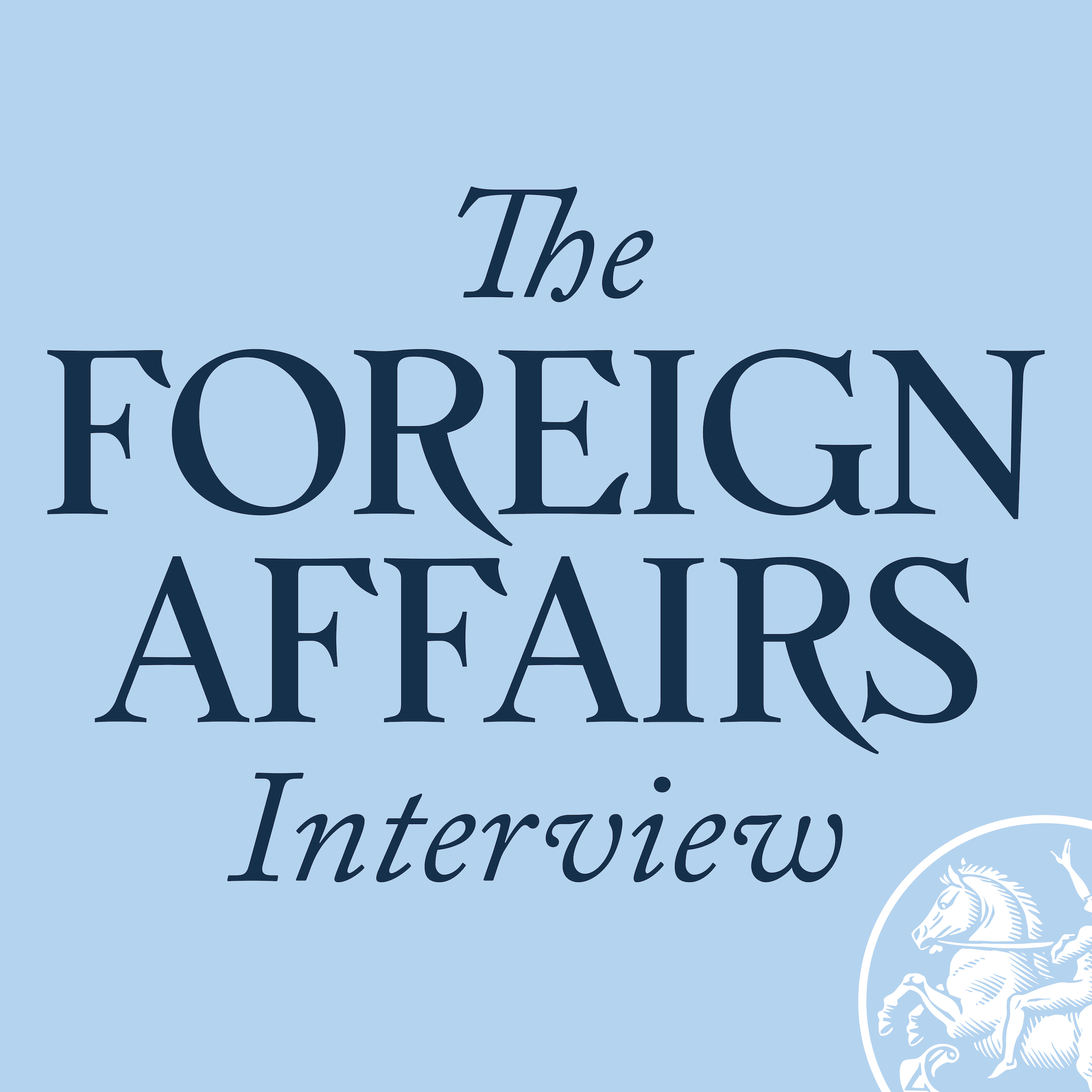

The Foreign Affairs Interview
Foreign Affairs Magazine
Foreign Affairs invites you to join its editor, Daniel Kurtz-Phelan, as he talks to influential thinkers and policymakers about the forces shaping the world. Whether the topic is the war in Ukraine, the United States’ competition with China, or the future of globalization, Foreign Affairs’ weekly podcast offers the kind of authoritative commentary and analysis that you can find in the magazine and on the website.
Episodes
Mentioned books

5 snips
Feb 8, 2024 • 36min
Is Anyone Still Afraid of the United States?
Former US Secretary of Defense Bob Gates warns of the dangerous geopolitical landscape and dysfunction in Washington. The podcast explores the lack of fear towards the United States, the need for a clear strategy and military assistance in Ukraine, the risks of escalating rhetoric in US-China relationship, the nature of the Chinese-Russian alliance, and the over militarization of American foreign policy and conflicts in the Middle East.

16 snips
Jan 25, 2024 • 33min
The Dangers of Defeatism for Ukraine
The podcast discusses Ukraine's current stalemate in the war, the need for the West to not give up on Ukraine, and the country's theory of victory. It also explores concerns over nuclear use, the importance of resuming support to Ukraine, and challenges surrounding the October 7 attack.

Jan 11, 2024 • 39min
Putin’s Fragile Compact With the Russian People
The podcast discusses Putin's hold on power in Russia and the ongoing war in Ukraine. It explores topics such as 'learned indifference' among Russians, support for repressive laws, cracks in the social contract, discontent among patriotic families, and attacks on individual morality and LGBTQ rights.

Dec 21, 2023 • 37min
Bonus: How the War in Gaza Is Reshaping the Israeli-Palestinian Conflict
Lisa Anderson, Salam Fayyad, and Amos Yadlin discuss Israeli strategy, whether Hamas can be destroyed, and the hope for a return to a peace process. They explore the goals and challenges of Israel in Gaza, the US dimension of the conflict, differing approaches to dismantling Hamas, proposals for the day after the war, potential governance of Gaza, and regional involvement.

6 snips
Dec 14, 2023 • 53min
America’s Dangerous Pessimism
Fareed Zakaria, host of Fareed Zakaria GPS on CNN, discusses America's pessimism and its impact on foreign policy strategies. He argues that the pessimistic assumptions are wrong and harmful. Topics include the concept of American declinism, the US global position, the turn against trade and nostalgia for manufacturing, the rise of China, and the Biden administration's approaches to China and the Israeli-Palestinian conflict.

11 snips
Dec 7, 2023 • 30min
Bonus: Who Killed the Chinese Economy?
Economists Adam Posen, Zongyuan Zoe Liu, and Michael Pettis discuss the causes of China's economic stagnation, including the lack of consumer rebound and the challenges of transitioning to a new growth model. They also explore the impact of China's foreign policy and civil-military fusion strategy, and the concept of the middle income trap on the rise and fall of the private sector.

4 snips
Nov 30, 2023 • 34min
How Will Artificial Intelligence Transform the Military?
The podcast discusses how artificial intelligence will transform the US military, including topics such as the competitive advantage of the US in AI innovation, the importance of responsible AI and potential dangers, creating a digital academy for tech talent, challenges in working with the federal government, and challenges in domestic politics and national security.

Nov 20, 2023 • 32min
The Missing Israeli Endgame
Former Israeli security chief Ami Ayalon discusses the importance of having a clear political goal and addressing security failures to achieve lasting peace in the Israel-Hamas conflict. The podcast explores the Israeli government's internal disagreements, political turbulence in Israel, Prime Minister Netanyahu's strategy, and efforts to advocate for a two-state solution in the Israeli-Palestinian conflict.

Nov 16, 2023 • 28min
What Do Palestinians Think of Their Own Leaders?
Amaney Jamal, dean of the Princeton School of Public and International Affairs, discusses a recent survey revealing low support for Hamas and their leader among Palestinians. The podcast explores the declining confidence in existing Palestinian regimes, viability of Israel's objective to eliminate Hamas, proposals for extending authority over Gaza, and promoting peace between Israelis and Palestinians.

17 snips
Nov 2, 2023 • 35min
Putin’s Cannon Fodder
Dara Massicot, an expert on the Russian military, discusses how Russia's treatment of its soldiers is affecting the war in Ukraine. The podcast covers topics such as Russia's perception of the conflict, their military objectives, potential missile launches, recruitment strategies, and understanding an adversary's military power.


